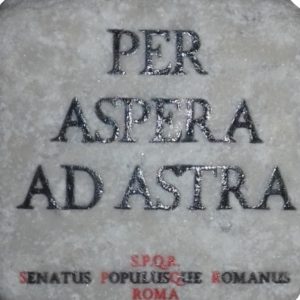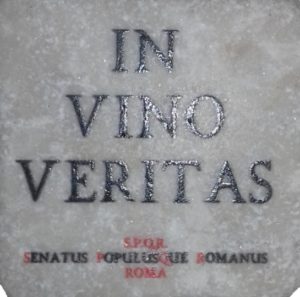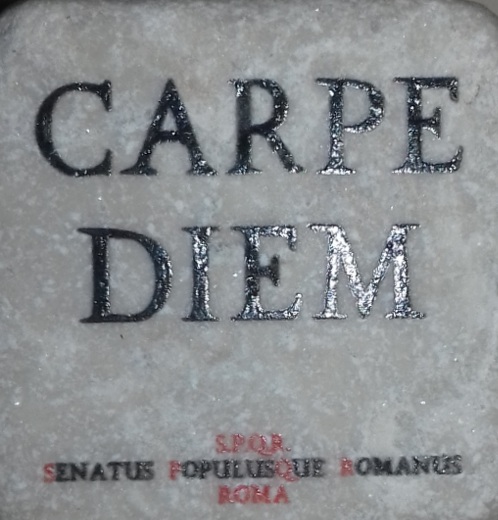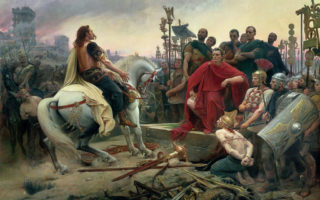Today, we are going to talk about things that I find interesting because we are going to talk about quotations. Indeed, quotes are things that I particularly appreciate because they can be funny, motivating, inspiring … For my part my favorite quote is “No, I don’t ever give up. I’d have to be dead or completely incapacitated. (No, I never give up. I have to be dead or totally incapacitated) from Elon Musk.
I find this quote motivating especially when you create projects that don’t work at first. Besides, do as I do, put your favorite quotes in the comments in order to share them with everyone. Now let’s get back to the main subject and here are 6 quotes from Ancient Rome.
First quote: Veni Vidi Vici

The first quotation is one uttered by Julius Caesar which means “I have come, I have seen, I have conquered.” He pronounced it before the Senate when he returned victorious from Asia Minor in 47 BC. As far as its use is concerned, two versions have come to us. The first, that of Plutarch, who says that it was announced in Caesar’s report before the Senate, when he was back from his battle against King Pharnace II. And the other version of Suedtone that says that this quotation was written on panels to show Caesar’s victory over the King of the Bridge (Pharnace II). In both cases, it was indeed used to celebrate a Caesar victory. Today this expression is used to signify a quick victory. From a popular point of view, Caesar’s quotation was repeated many times, notably in music by many rappers but also in the cinema.
Second quote: Per aspera ad astra

The second quotation is obviously a Latin quotation but for this one, there is little information about it. The person who pronounced or created it is not known or its origin.
It means “from the beaten path to the stars” and was used as a rallying cry. There is also a variant: “ad astra per aspera” which has much the same translation as the first version: “up to the stars by the beaten paths”. This expression as the first is also used nowadays. Notably as motto by different confederations, universities … but also as an institution name such as the “ad astra” school founded by Elon Musk… but it was also hijacked in the music world by the Swedish metal band Ghost.
Third quote : In vino veritas

This third quotation, unlike the other two, is not related to war or hard work but to truth. Indeed, it means “in wine, in truth.”
According to the Roman Tacitus, at meetings of the Germans, they sometimes abused the drink a little too much and said everything with great frankness and therefore they told the truth. Hence the fact that the truth lies in wine. This expression would be a derivative of a Greek expression with the same meaning and being attributed to Alcea, a poet. It was then found in various writings such as the Babylonian Talmud or chinese proverbs. All these variants of course have much the same meaning. More recently, artists used it in literature and more rarely in music.
Fourth quote : si vis amari ama

The fourth quote unlike the previous three is about feelings of love. It can be translated as “if you want to be loved, love.”
It originates from the Letters to Lucillius of Seneca. This quote is a well-known one but with few reuse in the various fields including music, film … like the previous ones.
Fifth quote : Carpe diem

The fifth quotation is not about war, nor about truth or feelings, but about the present moment. Indeed, it means “Pick up the present day without worrying about the next day” and not “enjoy the present day” as many think.
This quote therefore advises to take advantage of the present because we do not know what the future is made of. It originates from the Odes of the Latin poet Horace. This maxim is often visible on sundials in direct relation to time. Many authors reused it in the 16th Century until the 20th Century. However, there were many variances in the latter. Today, many people reuse it. Especially in the musical, poetic but also cinematic milieu as for example in the film “The Circle of The Missing Poets”. It is also a phrase very often used when making tattoos.
Sixth quote : Alea jacta is
The sixth and final quotation was uttered as the first, by Julius Caesar. Indeed, he pronounced it on 10 January -49 when he and his army passed the banks of the Rubicon River. This quote translates as “the spell is cast” or “the soon is cast.”
Indeed, he says this because at the time, the Rubicon separated Gaul Cisalpine from Italy. This part of Gaul was under the control of Caesar and Italy under the control of the Senate. The latter had forbidden anyone to cross the river with weapons or an army. This is in order to prevent Caesar from overthrowing Pompey and thus to march on Rome. Thus Caesar uttered this sentence because he relied on luck and once the river crossed, he could no longer turn back.
Despite the fact that three historians (Plutarch, Snttone, Appien) agree that Caesar uttered this quotation, a variant persists. Indeed, Suedius says that Caesar would have pronounced it in Latin while Plutarch says that Caesar pronounced it in Greek. In any event, it was indeed uttered and today it is one of the most well-known phrases Caesar has said. Today, many people use this expression especially in the media, in the music world or in the film industry.
I hope you enjoyed this article. I hope he’s introduced you to expressions you didn’t know or learned more about them. Also, feel free to put your favorite quotes in the comments. As for next week’s article, we will return to the urban environment of the Romans since this article is called “The 5 Most Important Cities of Ancient Rome”. See you next week!
Get my book Around the Roman Currency for free by clicking here



